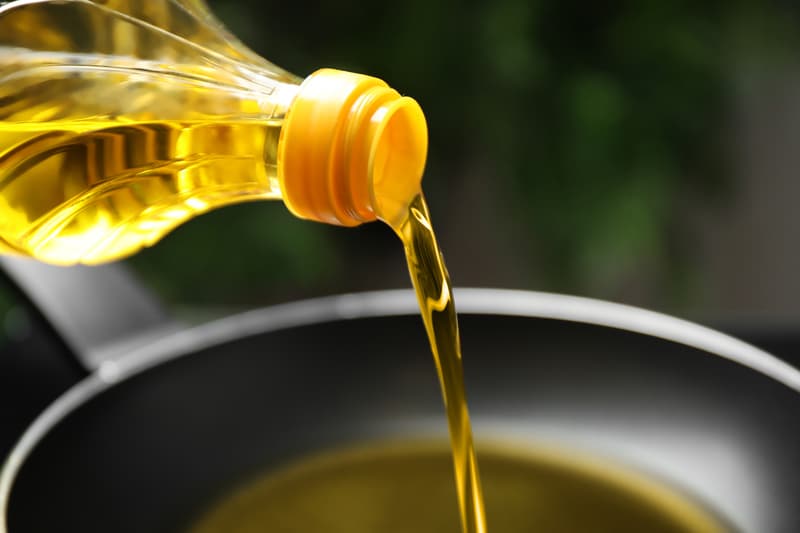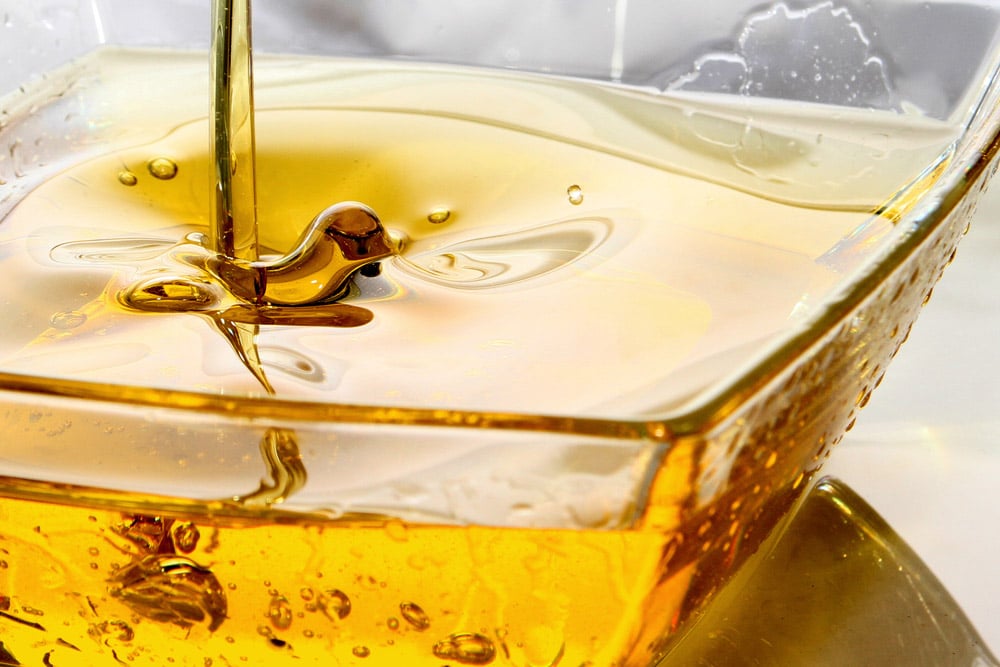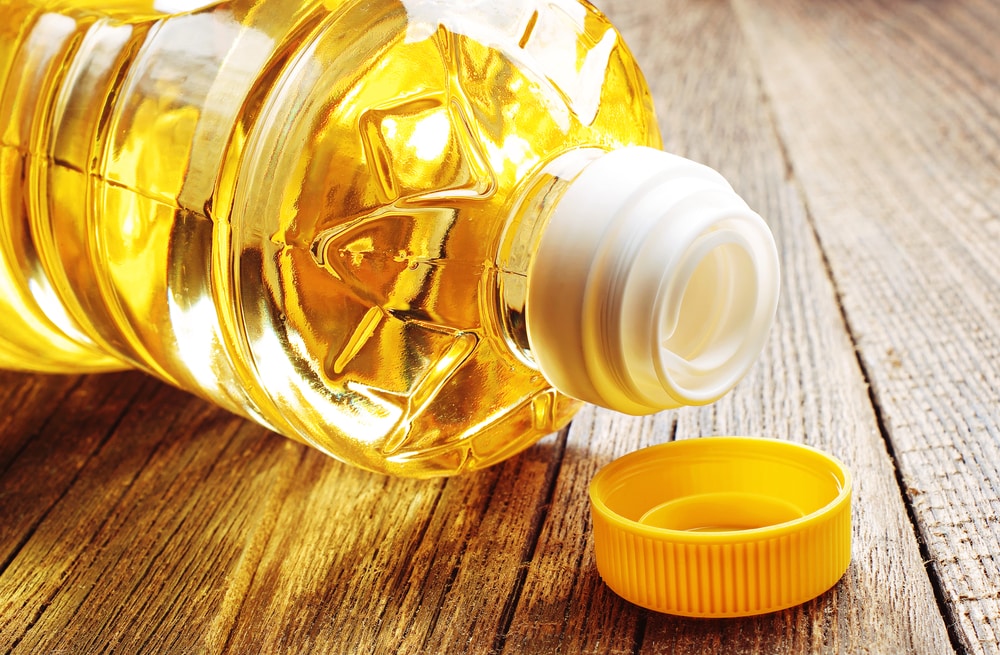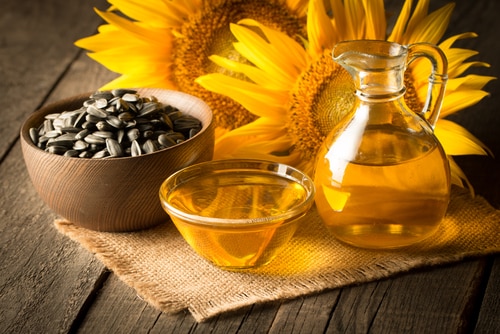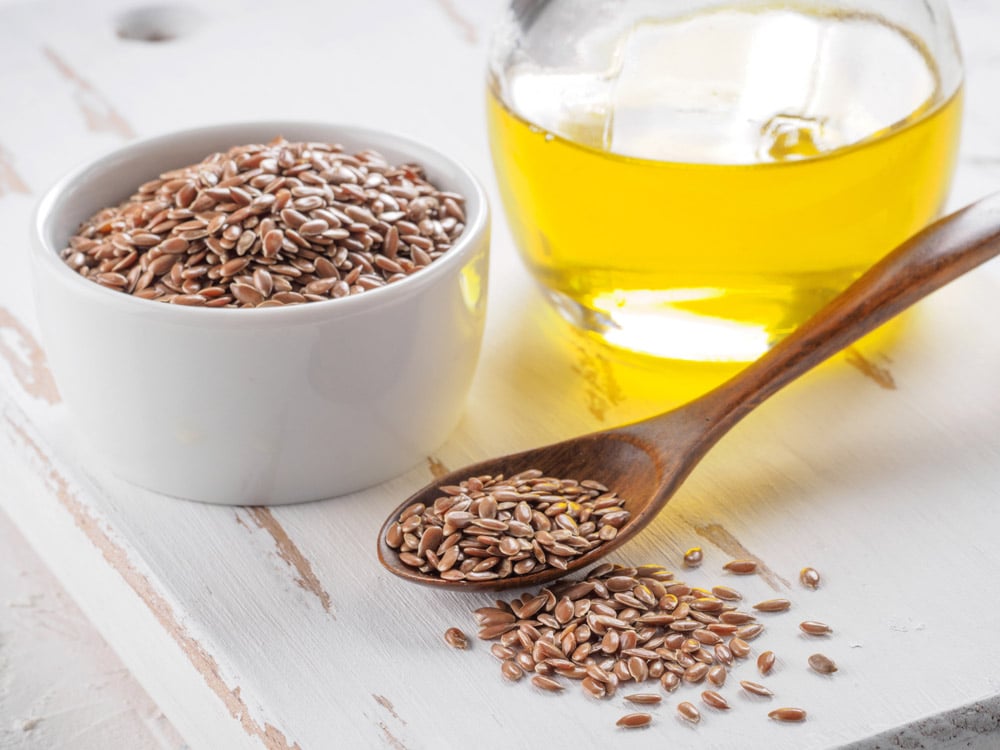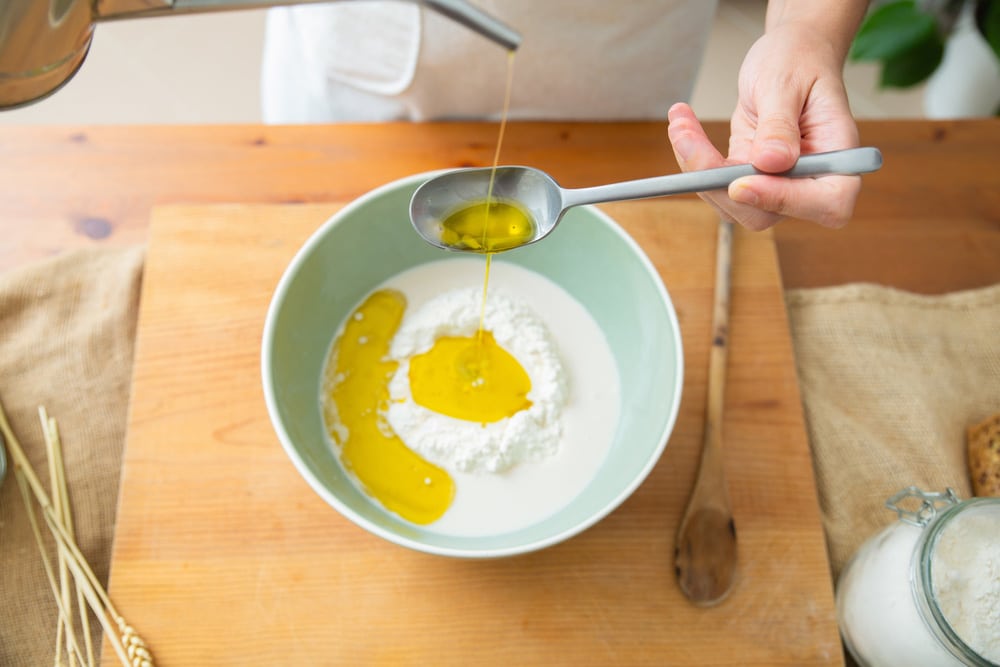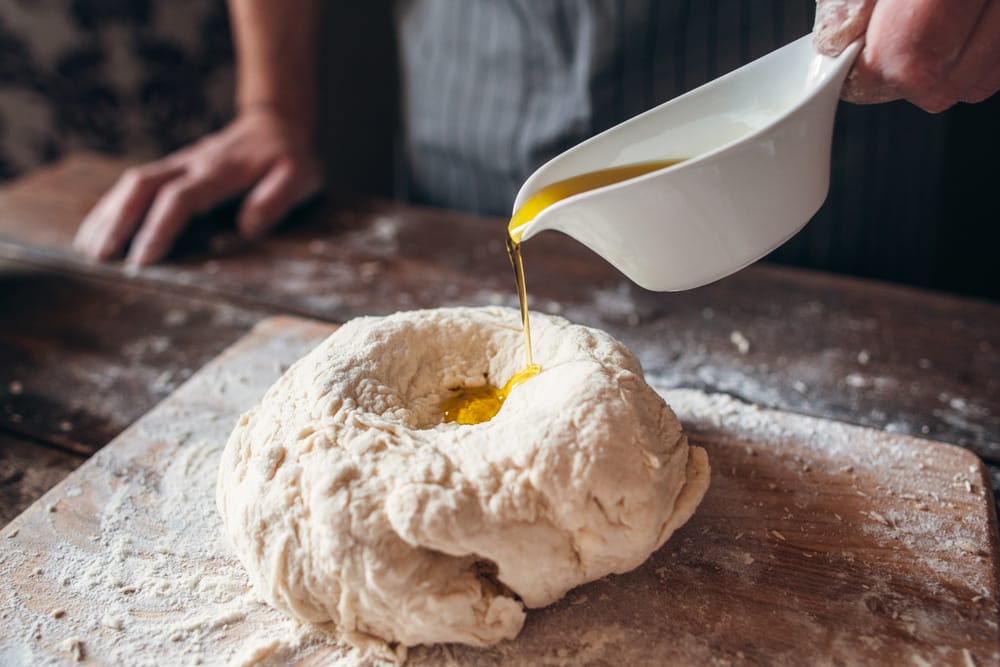
Even though there is a wide variety of cooking oils available on the market, it always helps to know which cooking oil is good for baking. The primary thing that you need to be concerned about is the smoke point at which oil starts to break down.
Once you’re familiar with the stability of a particular oil, it becomes pretty easy to manage your recipes. Recently we have received many queries about flavorless oil for baking. If you’re also into baking and looking for flavorless oil, then let us help you.
What is Flavorless Oil?
Flavorless oil is a cooking oil that has little to no flavor. Most of these oils are plant based such as vegetable or canola oil. These types of oils are ideal for baking, frying and grilling. Some experts also mention that that most of the refined oils have little to no flavor to them.
It can prove helpful to try and taste the oil to check the flavor before baking with it. If the favor is not intense, then you should freely use that oil for baking. It won’t affect the final result that much, and you will still get an acceptable dish once you’re done.
Similarly, if you’re not concerned about the final result, using oils with little flavor should not be an issue. In any case, tasting the oil might be your best option to check if a particular oil is flavorless or not.
Oils That are Not Flavorless
If you want to avoid using oils that have flavor then you should stay away from the following products:
Some of these oils have a nutty or buttery flavor that can be good for baking. But they can overpower some flavors of your recipes. So if you don’t want your oil to have a distinct flavor use flavorless alternatives.
How to Choose a Flavorless Oil for Baking
Before you can start baking with a flavorless oil, there are several factors to consider first. In this section, we’ll discuss how to choose the best flavorless oils for your baking.
- Fat Content
If you have high cholesterol or you’re on a low fat diet then you’ll want to use an oil that’s also low in saturated fats. As a rule of thumb you should bake with oil that has no more than 35% saturated fat. It must also have less than 0.5% of trans fat and over 50% unsaturated fat.
You can find the fat content of a flavorless oil either on the label or by Googling what the average fat content is for the type of oil you’re using.
- Smoking Point
Smoke point is a terminology used to indicate when an oil breaks down and burns at a specific temperature. If the oil burns it can make your baked goods taste unpleasant and it can release free-radicals into your food.
Different cooking oils will have a specific smoke point. Here are the smoke points for different types of flavorless oils:
- Canola: 205°C/400°F
- Sunflower oil: 232°C/440°F
- Corn oil: 232°C/450°F
- Vegetable oil:230°C/450°F
As you can see the smoke point of flavorless oils is an average of 450°F. On the other hand, avocado oil has the highest smoke point of 510°F to 520°F but it’s not flavorless. So corn or vegetable oil will be ideal for baking since they’re both flavorless oils.
- Nutritional Value
Some flavorless oils such as corn oil have beneficial nutrients such as vitamin E and omega-6 fatty acids. On the other hand, sunflower oil seems to contain the least nutrients but does contain vitamin E.
If you’re looking for an oil that has minimal flavor and rich in nutrients then you should choose flaxseed oil because it’s high in omega 3, protein and fiber. It’s also excellent for baking.
- Specific to Your Recipe
Some recipes will tell you whether you need to use canola oil or vegetable oils. You may want to adhere to the steps in the baking recipe because some oils may affect the texture of your baked goods. Your recipe may allow a substitute if you don’t have the specified oil.
Additionally, some oils are ideal for certain baked goods. For example, canola oil is said to be the best type of oil for breads. However, if you want a moist texture for cookies or cakes then the best option is vegetable oil.
And lastly, if you’re making pancakes then you’ll want to use flaxseed oil for a light coating. It’s important to use the oil specified in your recipe so you don’t ruin your baked goods.
Why Use a Flavorless Oil for Baking?
There are many reasons why people choose to use oils that have minimal flavor. Some people have a strong sense of taste and don’t enjoy the flavors of certain oils. If you’re one of those people then a flavorless alternative is ideal.
On the other hand, some baking recipes require specific types of oil as an alternative to butter. This is especially true if you’re making vegetarian or vegan baked goods. Butter has diary in it which is an animal based product. So if you want to go completely plant based then flavorless oil is the way to go.
Lastly, butter has an extremely low smoke point and can land up burning if you’re using it to grease pans. So people use flavorless oil as a substitute because it has an extremely high smoke point that won’t burn or affect the flavor of your baked goods.
Flavorless Oil for Baking
Choosing the correct type of oil can have a significant impact on the quality of your recipe. Aside from oil acting as the ultimate catalyst, it can increase the depth of flavor in your dish.
This is why you need to give extensive thought to the type of oil you’d like to use for baking. Here are flavorless oils to choose from.
- Vegetable Oil
One of the most common flavorless oils that people like to use for baking is called vegetable oil. It works perfectly well with most baking recipes.
People can get their hands on this oil quite easily as it is available in most local supermarkets. So, if you were looking for a flavorless oil for baking, then your primary option should be vegetable oil.
- Corn Oil
Corn oil is extremely high in fat and has about 122 calories per tablespoon. This type of oil is extracted from the germ of corn. Additionally, this type of oil is one of the prominent ingredient in some margarine brands.
This makes it an excellent alternative to butter if you’re a vegan. However, if you’re on a low fat diet then this type of flavorless oil isn’t for you.
- Canola Oil
Canola oil is made from crushed canola seeds. It has less saturated fat compared to other oils and it’s similar to vegetable oil.
It has the same consistency to vegetable oil and it’s also a flavorless ingredient that works well in any type of baking recipe. The reason why people prefer canola oil is because it promotes a healthy heart due to its low fat content.
- Sunflower Oil
Sunflower oil is pressed from the seeds that come from sunflowers. This type of oil is commonly used to fry foods such as meat or fries. Similar to canola oil, sunflower oil has many health benefits because it’s low in saturated fat.
Additionally, the oil is high in polyunsaturated and monounsaturated fatty acids which are both good for your health. The final product might not be as refined, but at least you will be able to get the job done.
While also looking at the flavor of the oil, you need to go for the alternative that has a high smoking point to avoid burning .
- Flaxseed Oil
Flaxseed oil is a colorless and flavorless oil that’s pressed from flaxseeds. This type of oil is commonly used to improve digestive health and lower blood pressure and cholesterol. It helps reduce the risk of heart disease. You can pour flaxseed oil in smoothies or over salads.
On the other hand, flaxseed oil is ideal for baking cookies, pancakes and muffins. What’s more, flaxseed oil is high in nutrients and contains many vitamins and fatty acids such as alpha-linolenic acid.
This is an essential omega 3 fatty acid and is known to prevent blood clots. It’s also low in calories and contains 7% protein.
To Conclude
If you’re looking for flavorless oil for baking, then vegetable oil should be your primary option. It is widely available and relatively easy to work with. Moreover, its high smoking point won’t cause any issues during the baking procedure.
However, you can also rely on corn, canola, or peanut oil alternatives if you don’t have access to vegetable oil. Other than that, you can easily determine the flavor of the oil by tasting it.
So, as long as the oil is refined and has little to no flavor, it shouldn’t be an issue to use it for baking. Hopefully, this information helps you decide which oil to choose for baking.

